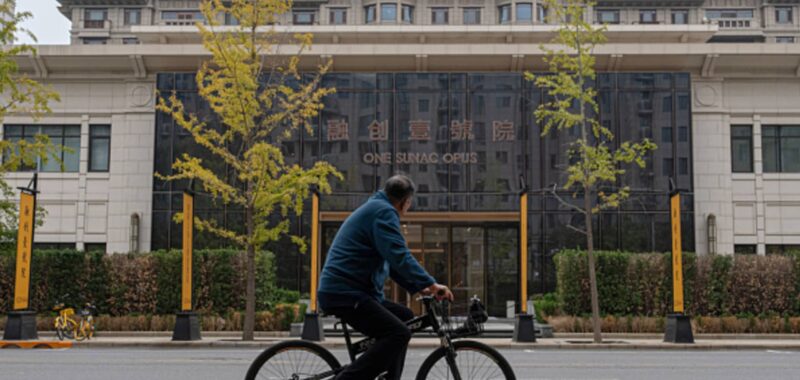Now that China’s key ministers have spoken on stimulus, analysts have narrowed down the stocks likely to benefit. Chinese stocks have tempered their recent rally as investors await more policy details. Data out Friday showed retail sales and industrial production for September beat expectations, while the real estate slump remained pronounced. Third-quarter GDP grew by 4.6%, mildly better than expected. Overall, GDP growth YTD has been 4.8% which is slightly behind the government‘s growth target of 5.0%,” David Chao, global market strategist of Asia Pacific (ex-Japan) at Invesco, said in a note Friday. “But given the recently announced stimulus measures,” he said. “I’m confident that growth is likely to accelerate in Q4 which is likely to boost full year 2024 growth above the 5.0% level.” Beyond interest rate cuts, the most tangible Chinese stimulus policies include subsidies to boost consumption with a trade-in program, along with incremental property market support. The central bank on Friday further detailed its new program to lend funds to companies to buy stocks. This stock-support program will likely benefit some names more than others, Morgan Stanley analysts said in an Oct. 14 report. They screened for mainland-traded Chinese stocks with relatively high dividend yields and strong cash flow. From that pool, the analysts looked for names which trade at least 20% higher than their Hong Kong-listed shares, and have at least 10% implied upside to Morgan Stanley’s price target. The four overweight-rated names that met those screening criteria were: PetroChina , WeiChai Power , Aluminum Corp. and Anhui Conch Cement . 1857-SZ YTD mountain PetroChina in 2024 China’s housing minister Ni Hong on Thursday indicated Beijing would speed up financial support for completing qualified, unfinished real estate projects that have already been sold. He was the latest senior official to hold a press conference, after the central bank head in late September, the economic planner on Oct. 8 and the finance minister on Oct. 12. If developers can get more funding, that may not boost sales immediately, but it can help improve confidence, said Edward Chan, a director at S & P Global Ratings. His team estimates China’s property sales will decline this year and next â to less than half its peak from 2021 â before stabilizing in the second half of 2025. While Chinese property developers may not bounce back right away, HSBC analysts expect construction software company Glodon, listed in Shenzhen, can benefit from property market stabilization. Enterprise cloud company Sangfor, also listed in Shenzhen, derives 90% from small businesses and local governments, making it a “major beneficiary” of the finance ministry’s plans to support local governments, the HSBC analysts said in an Oct. 14 report. “Market focus will likely shift from policy to fundamentals, and market dynamics from a beta rally back to stock-picking,” the analysts said. As for beneficiaries of China’s efforts to boost consumption, the HSBC analysts like Hong Kong-listed consumer electronics company Xiaomi and robot vacuum cleaner company Roborock, listed in Shanghai. Retail sales beat expectations with growth of 3.2% in September. Home appliance sales surged by more than 30% in September, while furniture sales turned positive, according to the National Bureau of Statistics, when describing the impact of national trade-in policies. Even e-commerce giant Alibaba is notching benefits. The company, said government subsidies and platform benefits contributed to a more than seven-fold surge in pre-sales of home appliances during the first hour of its annual Singles Day shopping festival that kicked of Oct. 14. That’s 10 days earlier than last year. The holiday originated with a focus on Nov. 11.

